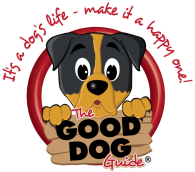“All dogs are therapy dogs. The majority of them are just freelancing”
Although the origins of this quote are unknown, the words resonate with all those who love and understand dogs. Dogs – the furry friends of mankind – are like therapy on paws. They can help heal what they did not hurt.

Dogs are the most popular choice for animal-assisted therapy (also known as pet therapy) for addiction recovery. And there are several reasons why they are so sought after as companions on the addiction recovery journey.
Understanding Addiction
Alcohol addiction is a neuropsychological condition. It is a treatable medical disorder. When a person is under its grip, it affects thinking, behaviour, and emotions. A person struggling with addiction continues to consume alcohol despite all the adverse effects on their personal, professional, and social life. Those struggling with severe addiction cannot, and must not abruptly stop alcohol consumption. Abruptly leaving alcohol can lead to severe complications and even death. It is advisable to get the required support and medical guidance at an alcoholics rehab. A person struggling with addiction can get proper help to overcome addiction safely at a rehab facility.
Challenges in Recovery
Admitting the problem and getting the required help is the first step (and most significant) in the recovery process. However, the journey of recovery is far from easy. It is lined with challenges such as withdrawal symptoms and relapse triggers. The person has to deal with the issues that led to the addiction in the first place. There may be stigma and discrimination against the person. People on the recovery journey often struggle with social isolation and loneliness. Dogs can help a person navigate through all these challenges to win the battle against addiction.
The Pawsitive Role of Dogs in Addiction Recovery
Pets make life a little more bearable and a lot happier. The only unconditional love in the world is the love between a pet and the owner. In the journey of addiction recovery, this unconditional love can be life-changing. Pets, especially dogs, play a therapeutic role in the recovery process. Here are a few ways in which they assist recover
Improvement in Mental Health
A lot of times, addiction coexists with another mental health condition. It is known as a co-occurring disorder. People use alcohol or other substances to self-medicate due to their mental health issues. Dogs help boost overall mental health. The companionship of dogs can alleviate the symptoms of several mental health conditions. Studies have proved that petting dogs lowers cortisol (commonly known as the stress hormone) and social interaction with dogs increases oxytocin (the feel-good hormone) levels. Oxytocin is also the hormone that bonds mothers to babies, so in essence, the bond between a dog and its owner is similar and pure. Stress is a major relapse trigger, so playing with and petting dogs is highly recommended during the recovery process.

Company and Comfort
Dogs provide comfort and company to people suffering from loneliness and discrimination during addiction recovery. Taking care of dogs requires the owners to step out. Even if an owner steps out with reluctance, it will still open opportunities for socialisation. Often people connect over their love for their pets. The companionship of dogs can lead to friendships with other humans, and the creation of a much-needed social network.
Exercise
Addiction wreaks havoc on the human body. Exercise can help undo some, most, or even all of the adverse effects of addiction. When a person does not feel like moving, the needs of the pet will provide the motivation. For the sake of bowel movements and to prevent unhealthy weight gain, owners need to take their dogs out for walks. It helps get in some form of exercise for the owner. During the recovery phase, exercise can help ease withdrawal symptoms, curb cravings, and minimise aggression.

Structured and Productive Routine
The needs of pets (food, exercise, and rest) necessitate some form of routine. A structured routine helps prevent boredom, which is another major relapse trigger. Pets provide a sense of purpose and responsibility. When a person takes good care of pets, there is also a sense of achievement and fulfilment. Routine can lead to an increase in productivity. The pet-related chores can keep a person busy and distracted from alcohol cravings.
Wrapping Up
Pet therapy or animal-assisted therapy complements other treatment processes and proves quite effective with patients in recovery programs. It is not a replacement of established treatment programs, rather it enhances their effects. Dogs and other pets can help humanise the difficult process of addiction recovery.
Article Supplied
